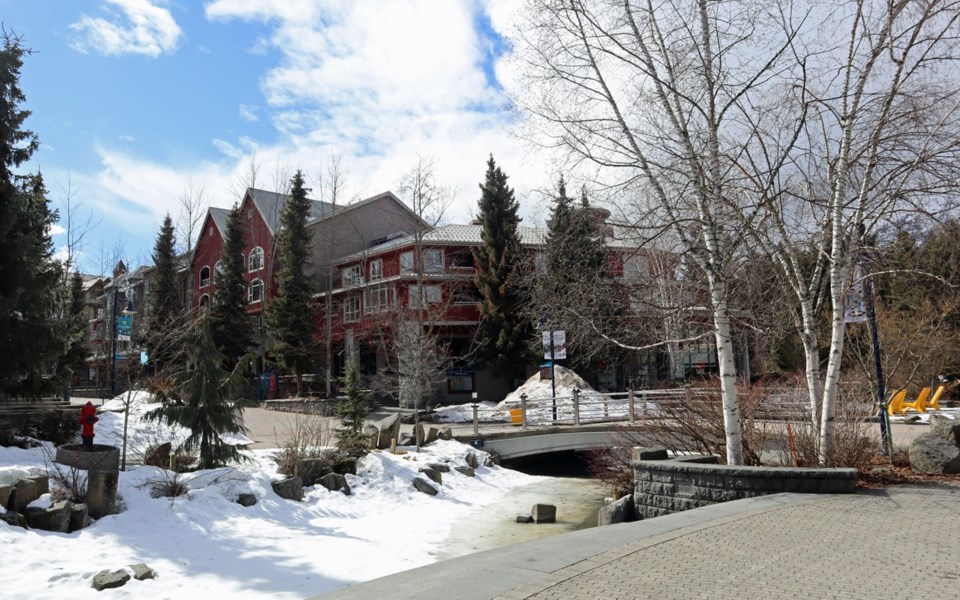with tourism at a standstill and Whistler effectively closed, should Tourism Whistler (TW) members have to pay their fees?
That's the question being posed by some members as COVID-19 continues to take its toll.
"Essentially, we had decent rentals forecasted all the way through the shoulder season in the fall, and they just evaporated. Vanished. Gone," said Arnold Schwisberg, a Toronto-based lawyer who has owned a condo in the resort since 2006.
"Meanwhile, there's still strata fees, and there's still a mortgage, and insurance, and all the other attendant costs with being a residential landlord."
When Schwisberg raised the point with TW, he was offered a deferral of payment until the end of May.
In a message to all members on April 9, TW's president and CEO Barrett Fisher explained the tough financial situation the organization finds itself in.
TW relies on two primary funding streams, she said: member assessments and Municipal and Regional District Tax (MRDT) collected from tourists.
With MRDT dried up (the resort is currently at about one-per-cent occupancy, TW estimates), TW has had to make cuts, Fisher explained, including temporarily laying off 60 per cent of its staff.
Fisher was not available for an interview before Pique's deadline.
In an emailed statement, she said TW is offering members the option to defer payment of annual fees without penalty, as well as the option to transition to a monthly installment plan at no cost, and that member fees "are still being invested into priority marketing and sales efforts to set our resort up for future success—including research analysis and insights into recovery scenarios, traveller intentions and global best practices; creation and sharing of brand awareness content through our social media, blog and website channels; and the securing of group meetings business for late 2020, 2021 and 2022.
"Member assessments are also being preserved for the launch of full recovery efforts. These initiatives will be critically important to regenerating Whistler's visitor economy for the benefit of local businesses, jobs, real estate values, and community well being,"
For Schwisberg, the explanation sent in the April 9 message to members doesn't hold up. In response to Fisher's letter, Schwisberg resigned his TW membership, stating that he will no longer pay any membership fees or levies, and is prepared to take legal proceedings on behalf of himself and all TW members.
Schwisberg has been involved in local legal proceedings in the past, taking the Resort Municipality of Whistler to court in 2012 over a dispute around the Jazz On the Mountain At Whistler festival, which he organized.
He said his annual TW fees (which must be paid in advance) amount to between $2,000 and $2,400.
In TW's bylaws, Schwisberg argued, it has set up what is "fundamentally the mandate" of the organization, he said.
"The members pay, and TW promotes the resort. In the simplest possible terms, that's how it goes. But now, TW can't promote the resort," Schwisberg said, adding that in legal terms that would be what's referred to as a "frustrated contract" (one that can't be met due to unforeseen circumstances).
"So if the contract has been frustrated, essentially there's no more contract."
Further, Schwisberg noted that the wording in TW's bylaws states that the organization shall provide a suitable continuing marketing program.
"This concept of mandatory obligations isn't unilateral. It's bilateral," he said.
"The members are required to pay their assessments, and TW shall, as their own bylaws say—shall—do the following things: marketing, advertising, and further ... They can't do those things. If they're required to do those things by their own bylaws, and they can't do them, they're not entitled to collect assessment fees."
On the legal front, Schwisberg said TW is covered by the provincial Societies Act, which allows for members to apply to the court for relief if an organization is acting in an "oppressive manner" to members.
"This concept of oppression is very broad. It essentially could mean different things according to the circumstances, but the circumstances here ... are completely unique," he said.
"I would like them to do the right thing, and acknowledge that at present there's not a heck of a lot they should do, [and] that membership is suffering. Each and every member they have, whether they're residential landlords or commercial landlords, have no income. Zero.
"To have TW continue to charge is somehow inconsistent with that."




